August 4, 2015
/
Posted by admin
/
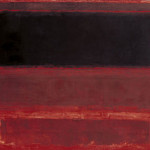

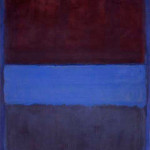
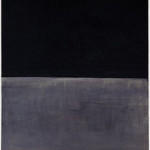 It’s funny what we’ll turn our nose up at, the things we choose to be snobby about can cover the gamut. It doesn’t escape anyone, you can be picky about which light beer to drink as much as you can be about drinking a Bordeaux before its time. People have beef jerky preferences, it’s not only a high brow trait.
It’s funny what we’ll turn our nose up at, the things we choose to be snobby about can cover the gamut. It doesn’t escape anyone, you can be picky about which light beer to drink as much as you can be about drinking a Bordeaux before its time. People have beef jerky preferences, it’s not only a high brow trait.
Sometimes I think Snobbery could be added as the 8th deadly sin, it would have changed the screenplay of Se7en in a funny way, “The killer seems to only commit his murders in apartments with views of Central Park.” At very least it is an unattractive trait. I try to avoid it, but have been called out for the behavior in the same calendar day.
Snobbery, in some cases, is making an assumption. It’s saying, I know what this is without trying or before experiencing the object or event. It is also a cultural and societal dick measuring contest, but I’ll live to tell that story another day.
This example brings me back to Florida, which, apologies to Florida, is not often thought of as the arts and letters State. In this bait and tackle shop of a community lives a small professional theater named American Stage, in St. Petersburg. It is an Equity house that has produced more than 25 years of theater, and once, many years ago, helped me find ballast on my rocky artistic path. My time at American Stage, which I chronicle in my book The Drama King, was an artistic life vest. It’s presence on my line graph has carried me forward to this very day. I should make a pilgrimage to this place once a year, alas, I do not.
A few months ago, I was back in St. Pete, visiting family for a graduation, and my girlfriend had a health crisis, that added an unfortunate B-plot to the festivities. My brother and his wife planned among other events a night at the theater, which was in the middle of its run of the John Logan play, Red. Since leaving New York I must admit that I don’t keep up with the New York theater scene. I was unaware of this play and its London and Broadway success. Sitting here now, I am making a note to turn off sports talk radio and to get the Sunday New York Times once in while, so my snobbery, I mean culture muscle, doesn’t atrophy.
I think snobbery and ingratitude are co-mingled – perhaps I should speak for myself. In the haze of hospital visits and lack of sleep, I was not looking forward to the play. Inconsiderately, I shared these feelings with my ailing girlfriend. “I don’t want to see this slow ass ponderous play about a guy and his paint brush, I hate that bougie shit, I have other things to worry about than this high brow, impractical bullshit.” I said. “Why don’t you go, it might inspire you,” my girlfriend said. I began again and was interrupted, “Why don’t you go, so you can stop ranting at my bedside.” I went to the play, toots sweet.
I was less than enthused on the way to my brother’s house. I was stressing out as the logistics of getting 10 people to the theater on time started to unravel. My theater snob iterating that “It is unacceptable to arrive to the theatre late, curtain is 8PM sharp.” We got there in time to hear the bells chime that it was time to enter the theater. I had a stirring in me, seeing the set and holding the program I started hearing from that bug that bit me all those years ago. I scanned the space, trying to locate where the sound and light booth were, and looking up at the lights. I scanned the room and braced myself against the tension of whether the crowd would settle in and pay attention, which since we’re talking about snobbery was a note to myself.
Looking at the program I saw only two characters, which means the actors would have to handle a ton of dialogue and knowing the likely rehearsal time had me worried. I needn’t have worried. The actors Gregg Weiner and Andrew Perez were up to the task. The play is a fictionalized account of the artist Mark Rothko and an assistant he hires, berates, and maybe teaches along the way. The plot centers on the commission of a mural for a restaurant, but really leaves room to discuss and battle over the nature of art, what is art, what is color, where does the intellect come into the picture. It is a full length one-act play, performed with no intermission. It went by with more ease than I expected it to, and got me thinking in the ways the playwright intended, which is to say it has many levels. The stagecraft was stellar at every turn. I wanted to read the script to see where the words were interpreted and where the author had crafted the scene. I could feel the collaboration, the professionalism, and the Floridians eating it up.
This is where the snobbery and gratitude lines came to cross. I had a chance to opt out, my girl was in the hospital, I wasn’t sleeping, I needed a minute to myself. The last thing I wanted was this appointment to keep. And, yet, this piece of art about art in an artistic desert was doing more for my battered psyche than a nap or some mindless television, or god forbid scanning social media. It was good. It was about something. It was, dare I say, invigorating to my spirit. It was doing its job.
I grew up in a family that appreciated the arts. Museums and books are a shared passion for all my siblings, and my parents. It dawned on me as I sat with my family and the next generation of it, that this art thing is passed down. It was being absorbed. If it is done well it feels like it relates to you in a specific way — for me, because I’m an actor and performed with this company many iterations ago, for my sister, who was an art history major and didn’t need the notes in the program to know about Mark Rothko. I wonder what it was for the kids, my nieces and nephew? Maybe it doesn’t matter, there will be a time when they remember, which is another thing that art does.
So as I circle back, I was being snobbish, because I didn’t want to watch a play in Florida, when I wouldn’t in LA, and I was reminded that those actors on stage were just like me when I take the stage as a comic. Unknown to most, but talented, and all they really need is for someone to give them a chance, which I don’t mean in the industry sense, but a chance to be seen as they proceed to do art, the industry caring or not caring to varying degrees. There are artists out there, grinding, cranking out good work, in places some snobs would call godforsaken outposts. And all they need is a place to show their wares, and I am one of them. The note to take for me, is sometimes being in the audience is part of the process. And sometimes in the last place you expected you are inspired.
A track record like the one at American Stage is something to be proud of, I thank them for a great night at the theater, on Earth.
June 18, 2015
/
Posted by admin
/
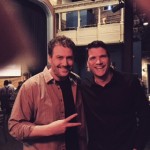 A movie cliché that I’ve never been able to corroborate is the idea that the criminal always returns to the scene of the crime. Is that true? How would you be able to find out? Wouldn’t the entire investigation consist of sitting at the crime scene until the perpetrator returned? It sounds like that script device that no one ever debates, and the writer hopes he can sneak in without much scrutiny. Kind of like all the nebulous legal jargon that permeates legal dramas with the writer hoping the audience gives him a pass.
A movie cliché that I’ve never been able to corroborate is the idea that the criminal always returns to the scene of the crime. Is that true? How would you be able to find out? Wouldn’t the entire investigation consist of sitting at the crime scene until the perpetrator returned? It sounds like that script device that no one ever debates, and the writer hopes he can sneak in without much scrutiny. Kind of like all the nebulous legal jargon that permeates legal dramas with the writer hoping the audience gives him a pass.
I was recently in the Tampa Bay area of Florida. My niece was graduating from high school and I was looking forward to the bathtub warm water of the Gulf of Mexico, the soft white sand, and a grouper sandwich.
Life intervened with a health crisis for my girlfriend, and we were lucky to have family, and two doctors on hand, and a great staff at the Bayfront Health Center in St. Petersburg.
Extending the trip presented an opportunity for me check the schedule at the Tampa Improv, to see who was in town and if it was someone I could impose upon for a guest spot. Turned out my buddy Dean Napolitano was in town, and he already extended the offer weeks before, when I asked if he was around the initial week I had planned.
More than 10 years earlier, Dean, was one of the first people I met in comedy when I was starting out. He was a recent arrival, but was a seasoned veteran of comedy. He had big time management and was running a show at a club. I was doing the open mic, on the insistence of my brother, and wondering what I had done with my life after leaving New York. These were not good days; I was living in an apartment with an interior bee’s nest and was missing New York after 9/11 when the city banded together. It felt like I left unfinished business, instead of following a dream westward.
I was embodying another cliché; that of the transplanted New Yorker lost and confused in the wilds of Los Angeles. I knew enough to shut up about pizza, bagels, and museums, but one of my early jokes had the terrible punch line, “now I’m like a soccer mom trying to get pussy,” about the car culture and dating in Los Angeles. Not my proudest moment, but you grasp at anything in the beginning.
Dean had some friends who saw me perform at the tail end of the open mic, and told Dean that I was funny. I hung out with them after watching the main show, and tried not to cling too hard onto what I thought was a good connection.
I was hungry for stage time and not so sure about the pathways to a career. I performed anywhere I could, at a Laundromat in Silver Lake, at spoken word open mics, where I’d pass off Springsteen lyrics as poetry, and once in a while with Dean and his crew.
It became imperative for me to have a tape of a set so I could get some real gigs. Even with better technology, getting tape is difficult, things go wrong: you forget to press record, you have to go off script to deal with a heckler, or somebody bumps into the tripod.
It came to me that if I got to Florida, I could ask a favor of my brother, who at the time was the executive producer of a local show that interviewed the headliners who were in town at the Tampa Improv. He had an “in” at the club — that was part one of the plan. The second part was to use his equipment from the television studio to make a professional quality tape. I was mic’d up, he had the camera they use for the reporters in the field, it was gonna be great.
I had a guest spot, which is usually 7 minutes, after the host. The headliner was Bill Bellamy. I had thrown a party the night before, at a club in LA that was the scene of an early comedy triumph that had bolstered my confidence. I flew to Tampa (hung-over) and changed into a good shirt in the car. I met the guy who extended the favor and who would also be the host. My brother took his equipment into the theater and I tried to settle my nerves with a Heineken.
The crowd started to fill in. I think I might have seen my parents and my sister-in-law before they headed to their seats. I was less than a year into doing stand-up, but was thinking this was finally a way in for me. It was writing and acting, it wasn’t passive, I could find a stage and I could perform.
The Tampa Improv is a beautiful club; it’s in Ybor City and has great architecture. It was a bigger crowd than I had ever seen. They were not there to see me. I was pacing around trying to get my energy going. The host started his set and was warming up the crowd. My brother was in the back of the room looking through the viewfinder.
The host introduced me. I had no credits. No reason to be there. And suddenly realized no material. All the jokes that worked in tiny rooms in Southern California coffee houses, and back rooms in bars were now sailing out of bounds like a rusty tennis player trying to get his game back on track. I was double faulting all over the place. I was looking for the light. It was only 7 minutes and I could not pull out of the nosedive. I was talking, doing the feeble material I had planned to do, but it was not club ready. It was not packed-house-Friday-night-paying-customer-ready. And it certainly wasn’t camera ready.
The light flashed, probably earlier than it would have flashed. I managed a dismount and walked off. The host started making fun of me and I walked to the bar and swallowed another beer in three gulps. The host came over and apologized for being a dick and kicking me while I was down, and he told me it wasn’t my crowd. I thanked him for the accommodation and apologized for eating shit. I had blown it. My brother had pulled a string and I had blown it.
My brother packed up his gear, and joined me at the bar, while I speed drank more beer. He asked me what I needed. I said I needed to get out of the building. I needed to go somewhere else fast. I needed to think about the rest of my life. We wound up at a barbeque joint and I soothed my shattered psyche with more suds.
Years later I returned to Tampa to play the rival club, Sidesplitters. I was the feature for my buddy, Jamie Kaler. My brother had his camera and I was ready. I had great shows, got great tape, and felt vindicated.
Last week, asking Dean for a spot, though, was returning to the place that made me question whether I would continue. This was the actual scene of my crime against comedy. Maybe those movie profilers are right. We do return.
My brother asked if I wanted him to see the show. He didn’t want to be a jinx. My girlfriend was well enough to attend and we were all looking forward to a night out on the town.
I have done over 1000 shows since I bombed in Tampa. I’ve got a couple of TV credits. I didn’t quit. But, I hadn’t set foot in that space since. I was warming up by goofing around with Dean, who I haven’t seen in years. I knew the stakes weren’t that high, it was a 10 minute set, on a Thursday. I just needed to stay sharp since I had to extend my time in Tampa. It didn’t look the same, until I looked to the back of the room, seeing where my brother had once set-up his camera. Then it came back, the anxiety. The crowd was good, more than half-full. The lights dimmed and the host was on stage, I was a few minutes away from being able to bury this demon, to slay this dragon, to succeed in front of family, to manifestly persist in the face of doubt. To travel back in time and say fuck you to that monster of fear and adversity. To feel good about myself. To make myself proud. To tell dick jokes in front of strangers. To do that thing we do.
I grabbed the mic and danced to the boy band music I had requested. I remembered to breathe and I remembered my girlfriend, who was in ICU for three days, texting me to “take my time.” I ripped it, or more accurately, I had a good set, got laughs and did my thing.
Dean had a great set and insisted I stand out in the lobby with him and thank the crowd as they exited. He was the headliner and they were there to tell him he did a great job, but enough people shook my hand and thanked me to let me know I had come full circle, that I had faced down a failure and turned it into a victory, to win the rematch, to get back off the mat, to get back on the horse, to topple the giant, to rattle off more clichés.
Maybe that’s why clichés are easy to use. They remind us of our connectedness. They remind us that life will step in and remind you who is in charge. And they remind you that if you return to the scene of the crime, sometimes you get to admire your handiwork.
Those ten minutes in Tampa didn’t add to my IMDb page, didn’t add money to my bank account, didn’t get me another agent. It was one of the few times where tying up a loose end is enough. It doesn’t come with a certificate. It is between you and whatever lifeforce you claim. It is one of those moments that you allow yourself some grace, some pride, some peace. I guess by sharing it I am looking to keep a record, or maybe encourage someone else to keep going, to try to face down constant discouragement. To remind myself that no one else can encourage you more than that voice inside you that says keep fighting. Thanks for hearing me. Peace.
April 25, 2013
/
Posted by admin
/

Families all have their stuff. You’ve heard that before, right? I’ve heard it and usually agree, but until a particular day, a few years back, I really didn’t have an incident to point to. Yes, all families have dynamics and tensions, but in mine they are largely unsaid, and in the face of other stories I’ve heard, we seem to be on a harmonious scale.
As the youngest by many years, I didn’t have the day-to-day sibling tensions or rivalries most kids did. I also tried to be on my best behavior because I wanted more time with my brothers and sister. I didn’t want to squander quality time with petty beefs that, truthfully, would need some manufacturing.
Life has it’s way of doling out wisdom and woe, knowledge and blind sides, and eventually we all catch up to each other as we get older.
Cut to: Christmas 2009, Portland, Oregon. The city was halted by the worst snow storm in 50 years, and my entire family was meeting at my brother’s house, as the storm clamped down the city and its roads. Portland knows precipitation, but not this kind. The city seemed to take a hands-off approach or they simply hadn’t had to deal with that kind of weather. Either way, it took some doing to get there and for my folks it was tough with my dad’s mobility being low, by this point. We made it, and my brother’s home was lovely, warm, and big enough for us to enjoy our holiday together, under one roof.
The close quarters may have started to take their toll, when in a silly fit of rage I confronted my brother for playfully spraying me with two different cologne samples using more mist than one would use when applying bug spray. We sat there watching a basketball game and I couldn’t shake the cloying stench of competing colognes laid on so thick, I felt transported to a whorehouse in the Wild West. I was staying at a hotel and had no change of clothes, and as the meaningless Christmas Day game warbled on, I started to let my brother know my discomfort was starting to make me angry.
My brother mentioned his legendary resolve when it came to escalating practical joke feuds. Not having grown up with the rough-housing associated with siblings of a close age I didn’t take well to personal boundaries being crossed. For some reason the word escalate seemed to cue my escalating rage, and I let loose a tirade, in third person, speaking as if I was given the chance to confront a loved ones killer in a courtroom. My brother and everyone in the room felt the atoms shift and it was parried with a thrust from my brother that ended with an expletive and a door slam (either figurative or literal, I’m not sure).
My other brother had a t-shirt for me to borrow, which may not have fit, and I stewed in my juices as I’m sure my brother did in another part of the house. We were snowed-in, to some degree, (not like Minnesota snowed-in, but, close), so walking out of the house and taking a couple of laps was not at our disposal. My cologne culprit brother was also in a walking boot, at the time, so I’m sure he felt the lack of mobility more acutely.
We made our peace in the kitchen a few hours later. It’s laughable today, and I should be glad to be in a family where this event is on the list of low-lights. I do wish it never occurred, but if you eavesdrop, to any degree, and hear the kinds of things families have done to each other, it makes you laugh, but I swear, if he comes at me with a spray bottle, I’m gonna have something for him.
April 9, 2013
/
Posted by admin
/
I will step aside and give my father the floor, in a quick second. The NCAA title has been decided and it has always been a shared family passion. With alumni from UCONN, Duke, Michigan, and Boston College in the same family, there was a lot to root for, me being a Carnegie Mellon alumnus, I got to enjoy the best of all worlds. I did pile on with my Mom and Dad and took the Huskies into my heart. What follows is a reprint of an article my Dad wrote, that appeared in the New York Times, after the nets came down.
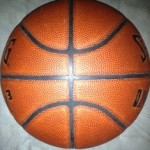
An Angel on His Shoulder at the Final Four
date: 04-04-99 New York Times
By GEORGE De GREGORIO
Going to the Final Four is quite an experience, especially if you start out without a ticket.
The notion of attending this extravaganza, held this year in St. Petersburg, Fla., came to me several months ago. It would have its advantages for me: My son Steve lives and works in the area, and I would stay with him and his family and enjoy the grandchildren. I also had hope and faith that the University of Connecticut basketball team, which I have cheered and supported for 47 years, could at last attain the charmed circle of the Final Four and even go on to win the national title.
Not having a ticket, of course, is quite daunting. And on top of that, how about not being able to get a flight to Florida because all seats seemed to be sold out? What did I expect on a weekend when the Final Four, college spring break and religious observances took place at the same time.
On Wednesday I decided to pack a bag and go by train, a 24-hour trip. I would scrounge a ticket by hook or by crook. I had a limited budget of crazy money in case I caved to the scalpers.
I was off on a one-man odyssey. Before it was over, it would give me an exhilarating emotional experience, a kismet-like dimension — that was not supposed to happen in this kind of environment.
I had asked around The New York Times to see if there were any tickets available. No luck there. One editor thought he might be able to make a contact, but that fizzled. He also asked a basketball reporter to keep an eye open in case something turned up.
With the Saturday, March 27, semifinals a couple of hours away, I still did not have a ticket. UConn-Ohio State was scheduled for 5:42 p.m. I had staked out a spot near the gate for the news media, hoping to bump into someone I knew who could help me. It was hot; temperatures were in the 80s. Sweat poured off me. “I need one,” I chanted, shooting one finger skyward.
At about 4 p.m., two familiar faces bounded toward me — two reporters in ties and jackets and ready to write about the games for The New York Times. They knew of my plight, but had not come up with anything.
“Stick in there,” they said. “Something is bound to come up.”
I had become a UConn fan when I was a student there. After I graduated in 1952, I became a sports reporter for The New Haven Register and was assigned the UConn beat. Like the current coach, Jim Calhoun, I and many other fans had endured the rap that UConn was good to watch but not able to clear one hurdle, the leap to the Final Four.
As I waited, I chatted with a young reporter from The Orlando Sentinel. At that moment, I realized that at my age — old enough to retire — I must have looked odd and amusing to the young woman. I thought: what am I doing out here in this blazing sun, acting like a homeless vagabond, trying to crash an event in which young men in the springtime of their lives were reaching for a dream of excellence in a sport I once played, however tentatively, in my own springtime? And I realized that yes, that was reason enough for going.
Suddenly I felt a tap on my left shoulder. I turned to see a lean, middle-aged man, wearing glasses and a gray cap with no insignia, standing behind me.
“Hi,” he said. “I guess you’re looking for a ticket. I’ve got an extra one you can have.”
“Yeah?” I said. “How much?”
“Nothing,” the man said. “You’ll be sitting next to me.”
“You sure I can’t pay you?” I said.
“You look like a fan. I don’t think you’ll try to sell it.”
I pointed to the turnstile at Gate 6. “I’m going right in now,” I said, trying to reassure him that I would indeed not sell the ticket. “I’ll see you in there,” he said.
I was so flabbergasted, I didn’t even look at the ticket to see if it was real or where the seat was situated.
I bought a hot dog and a soft drink and went to my seat — Section 314, Row R, Seat 24, on the aisle. I was way up there, but the view was unobstructed. I could see everything. On the scalpers’ listings, this one was going for $500.
Shortly before game time, the man arrived. Quiet and unassuming, he said he thought that of the four teams he would root for Michigan State, but he liked UConn’s chances. I asked him his name, but he refused to give it. I asked where he lived, and he refused to reveal that, too.
He was very savvy about the tactics and strategy of the games — the screening, the rebounding, the inside game, the press, the use of timeouts, fouling, and how it all might play out.
Between games, after UConn’s victory over Ohio State, I offered to buy refreshments. He refused. Again I offered to pay for the tickets. I asked for his name again, his address, his phone number. Each time he emphatically refused. “You’ll only send me money,” he said.
“This is a very unusual thing you’ve done,” I said. “Not many people would give these tickets away in this environment without seeking a big profit.”
“You’re a fan,” he said. “I know you wouldn’t sell it.”
He was the Anti-Scalper, the Anti-Profiteer. Maybe he got his kicks by standing firm in an age of fast-buck commercialism. He was taciturn, but I couldn’t call him strange or judge him. He might have thought the same about me, birds of a feather, and had picked me to receive his gift for that reason. Whatever, I was so engrossed in the UConn play and victory that I wound up hoarse.
At the end of the second game, when Duke beat Michigan State, he bounded into the crowd of more than 41,000, ignoring my pleas for information about him, and seemed to disappear.
The championship game was scheduled for 9:18 on Monday night. I was still clinging to my budget in case I had to yield to a scalper. This was one game I was not going to miss. At 6 p.m., I still did not have a ticket. UConn might become the national champion, and I might not see it happen.
I staked out the media entrance again. The same feeling I had had on Saturday came over me. The evening was cool. One fellow sported a sign reading: “Need One Ticket, Desperately. My Life Depends on It.” Panic time was setting in — surrender to the scalper or go watch it on TV.
Suddenly I felt a tap on my left shoulder. I turned to see the same lean, unassuming man with the gray cap staring at me. He was selling nothing.
“I’ve got an extra ticket again,” he said, recognizing me. “It’s yours if you want it.”
“You got to let me pay you this time,” I said.
“No way,” he said. “I know you won’t sell it because you’re a fan. I’ll see you up there.”
When he took his spot beside me — Section 314, Row R, Seat 23 — he seemed to want to say he would be noncommittal about which team he favored, but he was as engrossed as I was throughout by the exceptional play between UConn and the powerful Duke team.
“One of the best games I’ve seen,” he said.
I managed to get him to say he was from Miami, but his name, address, phone number, occupation, family remained private.
I was able to buy him a cup of Carvel ice cream at halftime. He reluctantly accepted it, and he seemed to enjoy it.
He did not stay for the post-game ceremony after UConn’s victory, disappearing into the crowd as he had done on Saturday night. He went out of my little odyssey as mysteriously as he had come into it.
I would like to think he was a true basketball fan, one who saw too much crass commercialism in an event and a game that he loved and respected, and he would not sell out. Maybe he wanted to share that with somebody, thereby coming to the rescue of a kindred spirit.
I wish I knew who he was, but does it really matter?



 It’s funny what we’ll turn our nose up at, the things we choose to be snobby about can cover the gamut. It doesn’t escape anyone, you can be picky about which light beer to drink as much as you can be about drinking a Bordeaux before its time. People have beef jerky preferences, it’s not only a high brow trait.
It’s funny what we’ll turn our nose up at, the things we choose to be snobby about can cover the gamut. It doesn’t escape anyone, you can be picky about which light beer to drink as much as you can be about drinking a Bordeaux before its time. People have beef jerky preferences, it’s not only a high brow trait.



